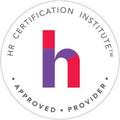The Skill Code: How to Save Human Ability in an Age of Intelligent Machines with Matt Beane
The Next Practices Weekly call series has become a well-attended and wide-ranging discussion for HR leaders each Thursday at 11am ET / 8am PT. On this week's call, i4cp Director of Research Enablement Judy Albers and i4cp Senior Research Analyst Tom Stone were joined by special guest Matt Beane, Assistant Professor at the University of California, Santa Barbara, and author of the new book The Skill Code: How to Save Human Ability in an Age of Intelligent Machines. In today's tech-driven world, the crucial mentor-mentee relationship is at risk. As we strive to optimize productivity with AI and robotics, we are inadvertently distancing junior workers from seasoned experts across various industries. This growing gap is a multi-trillion-dollar problem that has largely been overlooked—until now. Here are some highlights from the call:
- Matt Beane's new book, The Skill Code: How to Save Human Ability in an Age of Intelligent Machines, is now available. You can order from Amazon or visit the book's website at www.theskillcodebook.com for links to other retailers. As a fun introduction to the event, Albers had created a custom, AI-generated, Beach Boys inspired song called "Surfing the Skill Code."
- Beane is a professor of technology management, and said he is often referred to as the "Robots and Work" guy. He studies how work changes when we introduce robots, automation, AI, etc., into a wide range of occupations. In particular, he has focused on how the introduction of such technologies impacts the acquisition of skills.
- On experts, novices, and skill development. A key aspect of Beane's studies is the relationship between expert and novice workers, in a wide range of areas. For example, expert surgeons are often paired with a less experienced surgeon so that they have "two people, four hands" to do the surgery. With robotics involved, a single expert surgeon can have "three hands" on their own -- which often eliminates the need for the novice assistant (often a resident who is learning to one day become a lead surgeon themselves). Doing so, however, eliminates the learning opportunity for that less experienced, apprentice assistant.
- Short-run productivity gains vs. long-run capability gains. That problem of course occurs in many other fields beyond surgery. And it exists in the context of businesses and leaders being incentivized--often pressured--to find ways to cut costs, reduce headcount, reduce risk (which is higher with novice workers in many areas), etc. Beane said that very few people (except of course L&D professionals in HR) are incentivized to look for this skill development issue for novices in the workplace.
- The need to insist on both. Even given this challenge, Beane is not "all doom and gloom" when it comes to AI and skill development. The trick is to wake people up to this problem, so that there is an opportunity to keep the productivity gains from the new tools while insisting that we preserve skill development for the long run.
- The impact on connections and mentorship. Beane noted that even the studies that show that some AI/automation tools provide the greatest productivity gains for the least skilled workers, often still come with an unintended consequence: those workers aren't learning from mentors or from other experts to get to that level of productivity, so they are less often making professional connections that will later take them to still further levels of skill and career advancement.
- Don’t let AI dumb you down: productivity vs. judgement. Albers noted an example of financial auditors at a firm that were found to be very skilled at following a checklist and working accurately and quickly. But many of them had developed a checklist-mentality, and lacked advanced judgement to apply in the more nuanced cases. Similarly, Beane urged to not let AI and other automation tools lead us to avoid friction in our work that builds further skill development. In short, skills are built at the edge of competence.
- Customize your Generative AI tools to encourage skill building. Beane noted that you can work with, for example, Generative AI systems (such as ChatGPT) to customize them to nudge the user towards skill development, connection-making, etc.-- even while they also achieved greater quality, speed, etc., with the task at hand.
- The Skill Code. The basic skill code shared in the book is Challenge + Complexity + Connection. These three Cs are not in good health in many contexts today, not just in regards to AI/automation but also concerning many organization processes and policies. The solution in many situations is to insist on both productivity and skill building, and to find ways that make both better.
- Generative AI systems will one day include learning nudges. Beane said that while Microsoft Co-Pilot and other systems don't today have built in learning nudge features, the first platform or company to include that will get a significant market boost. Because who doesn't want to both learn and get greater productivity at the same time?
Links to resources shared on the call:
- Upcoming i4cp virtual events
- i4cp global events (APAC and EMEA)
- i4cp's Next Practices Now conference
- 2024 Conference Recordings (members only)
- Information on i4cp Membership
- i4cp’s new Team Network Effect report (full report for members only, non-members should download the executive brief)
- Matt Beane's book The Skill Code is available at Amazon and other booksellers
- The book website is www.theskillcodebook.com
- Follow Matt Beane on LinkedIn
This event is approved for certification credits.








